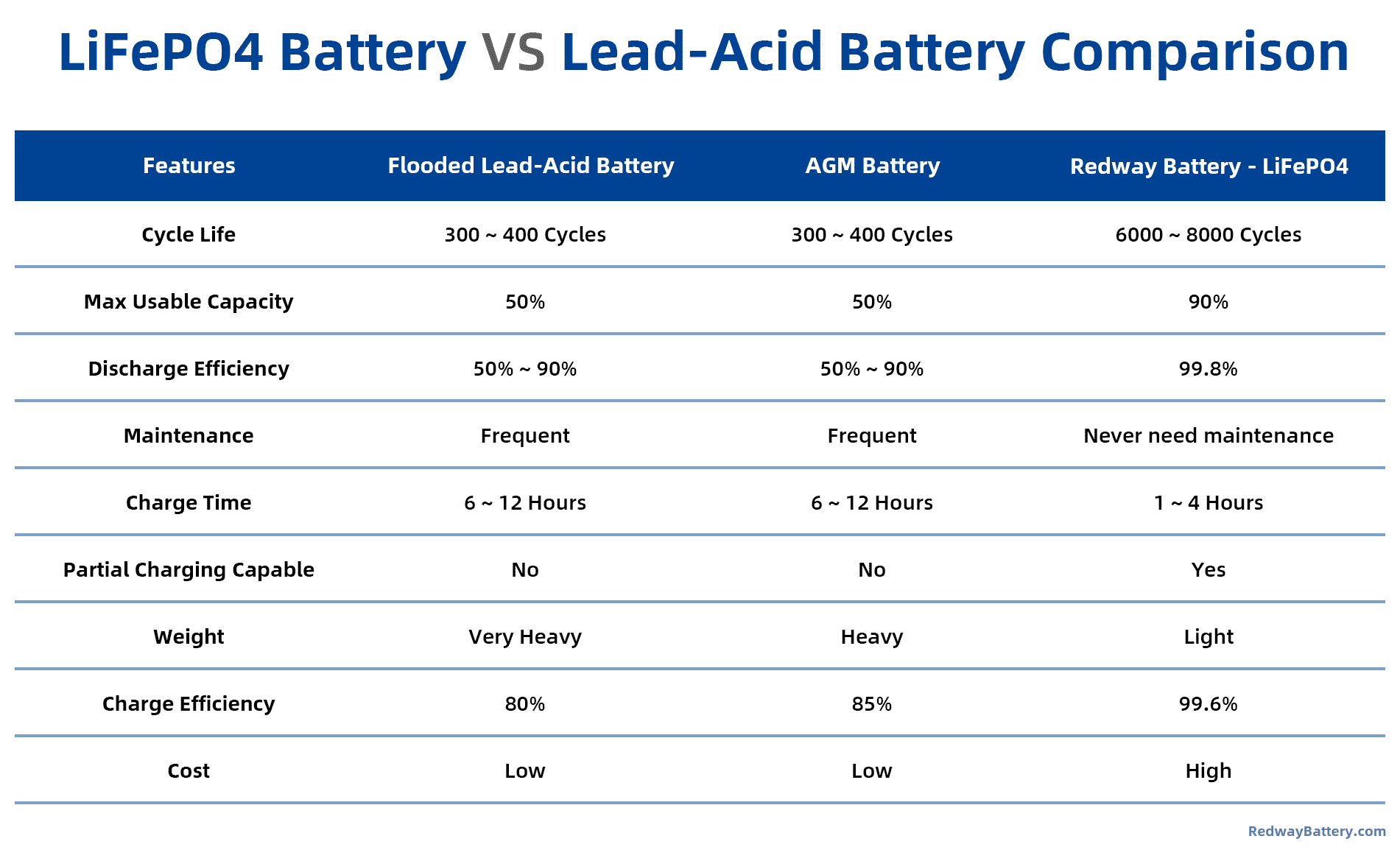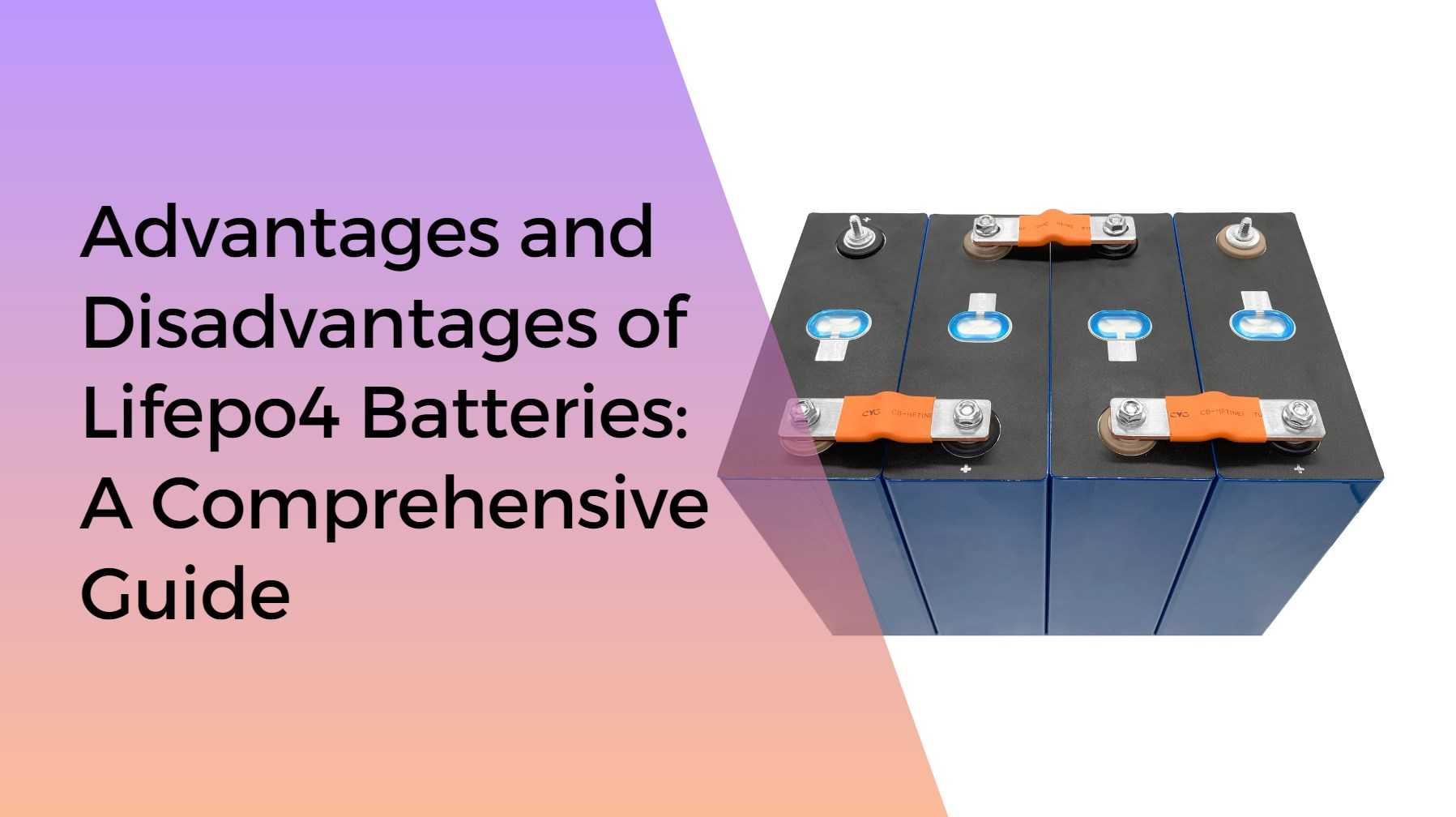Lithium Iron Phosphate (LiFePO4) batteries are a type of lithium-ion battery known for their enhanced safety, superior thermal stability, and long cycle life. These attributes make them a preferred choice in various applications, from renewable energy storage to electric vehicles. This article delves into the specifics of LiFePO4 batteries, highlighting their advantages, disadvantages, and potential uses.
Key Advantages of LiFePO4 Batteries
1. Extended Lifespan
LiFePO4 batteries boast an impressive lifespan, often exceeding 10 years with proper maintenance. This longevity is attributed to their robust chemical structure, which withstands numerous charge and discharge cycles without significant degradation.
2. High Energy Density
Compared to traditional lead-acid batteries, LiFePO4 batteries offer a higher energy density. This means they can store more energy in a smaller, lighter package, making them ideal for applications where space and weight are critical, such as in electric vehicles and portable electronics.
3. Superior Safety
Safety is a paramount concern with any battery technology. LiFePO4 batteries excel in this area due to their inherent thermal and chemical stability. Unlike other lithium-ion batteries, they are less prone to overheating and do not suffer from thermal runaway, significantly reducing the risk of fire or explosion.
4. Low Self-Discharge Rate
One of the notable benefits of LiFePO4 batteries is their low self-discharge rate. This feature allows the batteries to retain their charge for extended periods when not in use, making them suitable for standby and emergency power applications.
5. Environmental Friendliness
LiFePO4 batteries are more environmentally friendly compared to other battery chemistries. They do not contain toxic metals like lead or cadmium and are easier to recycle, reducing their overall environmental impact.
6. High Performance in Extreme Conditions
LiFePO4 batteries maintain consistent performance across a wide range of temperatures. They perform well in both high and low temperatures, making them reliable in various environmental conditions.

Disadvantages of LiFePO4 Batteries
1. Higher Initial Cost
One of the primary drawbacks of LiFePO4 batteries is their higher initial cost compared to other battery types, such as lead-acid or nickel-cadmium batteries. This cost can be a barrier for some users, although the long-term benefits and lifespan often justify the investment.
2. Lower Energy Capacity
While LiFePO4 batteries offer many advantages, they generally have a lower energy capacity compared to other lithium-ion chemistries. This means they may not be suitable for applications requiring very high energy storage in compact sizes.
3. Special Charging Requirements
LiFePO4 batteries require specific charging protocols to maintain their lifespan and performance. Improper charging can lead to reduced capacity and lifespan, necessitating the use of compatible chargers and management systems.
4. Sensitivity to Extreme Temperatures
Although they perform well in a range of temperatures, LiFePO4 batteries can be sensitive to extreme cold, which may affect their charging efficiency and discharge rates. Proper thermal management systems are required in such conditions to ensure optimal performance.
5. Risk of Misuse
Despite their safety, LiFePO4 batteries can pose risks if mishandled or improperly manufactured. Ensuring that they are sourced from reputable manufacturers and used according to specified guidelines is crucial to avoid potential hazards.
Applications of LiFePO4 Batteries
Renewable Energy Storage
LiFePO4 batteries are increasingly used in solar energy storage systems due to their long lifespan, safety, and high energy density. They provide a reliable power source for off-grid and hybrid solar installations.
Electric Vehicles
The automotive industry leverages LiFePO4 batteries for electric vehicles (EVs) due to their durability, safety, and ability to deliver high power output. These batteries support the extended range and reliability required for modern EVs.
Portable Electronics
High energy density and safety make LiFePO4 batteries suitable for portable electronic devices, including laptops, smartphones, and power tools. Their long cycle life ensures that these devices remain functional over extended periods.
Backup Power Systems
LiFePO4 batteries are ideal for uninterruptible power supplies (UPS) and backup power systems. Their low self-discharge rate ensures that they are ready to deliver power when needed, making them a reliable choice for emergency power solutions.
Marine and Recreational Vehicles
Due to their robustness and resistance to environmental factors, LiFePO4 batteries are used in marine applications and recreational vehicles. They provide reliable power in harsh conditions, ensuring the functionality of critical systems.
Lifepo4 Batteries VS lead acid batteries
When comparing Lifepo4 batteries (lithium iron phosphate) and lead acid batteries, there are notable differences. Lifepo4 batteries have a longer lifespan, reaching 2,000 to 3,000 cycles or more, compared to 500 to 1,000 cycles of lead acid batteries. They also have a higher charge current efficiency and can accept charge at a higher rate. Additionally, Lifepo4 batteries provide 100% of their rated capacity regardless of the rate of discharge, while lead acid batteries offer less usable energy. Consider these factors when choosing between the two battery types.

-
Longer Lifespan: Lifepo4 batteries have a significant advantage in terms of lifespan. They can endure 2,000 to 3,000 cycles or more, while lead acid batteries typically offer 500 to 1,000 cycles. This extended lifespan translates to greater longevity and cost-effectiveness in the long run.
-
Higher Charge Efficiency: Lifepo4 batteries have a higher charge current efficiency compared to lead acid batteries. This means they can accept charge at a faster rate, allowing for quicker charging times and more efficient energy utilization.
-
Usable Energy: One notable difference is the way these batteries provide usable energy. Lifepo4 batteries deliver 100% of their rated capacity, regardless of the rate of discharge. On the other hand, lead acid batteries tend to offer less usable energy, especially at higher discharge rates.
Conclusion
LiFePO4 batteries represent a significant advancement in battery technology, offering a blend of safety, longevity, and performance. While they come with a higher initial cost and specific maintenance requirements, their benefits often outweigh these disadvantages. As the demand for reliable and sustainable energy storage solutions grows, LiFePO4 batteries are poised to play a crucial role in various industries, from renewable energy to electric transportation. Investing in LiFePO4 batteries is a step towards ensuring a more reliable, efficient, and environmentally friendly energy future.




